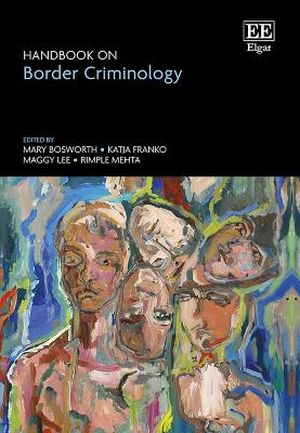
This topical Handbook investigates the nature and impact of intersections between border control and criminal justice. Using comparative and decolonial perspectives, it demonstrates the corrosive effect of harsh border practices not just on those subject to them, but to many of the key principles of liberal democracy.
The Handbook presents a comprehensive overview of the rapidly growing field of border criminology and introduces original research, new theoretical perspectives and methodological innovations. It considers the relationship between research and activism as well as the lived experiences of those subject to border control. International scholars from a range of social science disciplines, including criminology, socio-legal studies, sociology and anthropology critically assess the nature, findings, and implications of the intersections between border control and criminal justice. In response to politically charged debates on immigration and border policing, they dissect the punitive laws and policies and consider alternatives.
The Handbook on Border Criminology is an unmissable read for students and scholars of criminology, socio-legal studies, migration, borders, human rights and public international law. In its global reach, this unique Handbook is also of great benefit to practitioners and policy makers.